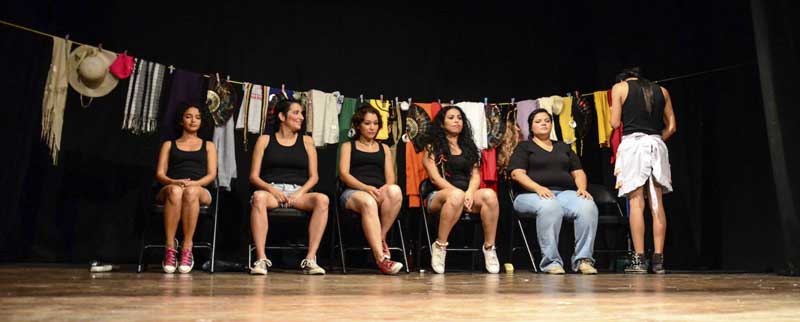 I sensed a lot of pride from these women [Hijas de Maiz], especially from Ana as she would speak about her experiences as a woman in Nicaragua and about her experiences in Women in Action. La Primavera is one of the poorest neighborhoods in Managua, and in this neighborhood, and poor neighborhoods in general, forms of oppression are often more apparent. Women in Action has made substantial progress in dealing with the sexism that has pervaded through La Primavera over the years by focusing on the future generation of women in Managua. Ana spoke very passionately about sacrificing her life and dedicating her life to this movement, so that future generations of women could pursue their dreams, whether it be going to graduate school like one of the dancers or simply living a long, healthy life. Ultimately, Women in Action is bridging the gender disparity between men and women in Nicaragua, especially in La Primavera, so that women can get an education or have access to better health or be equals in a marriage.
I sensed a lot of pride from these women [Hijas de Maiz], especially from Ana as she would speak about her experiences as a woman in Nicaragua and about her experiences in Women in Action. La Primavera is one of the poorest neighborhoods in Managua, and in this neighborhood, and poor neighborhoods in general, forms of oppression are often more apparent. Women in Action has made substantial progress in dealing with the sexism that has pervaded through La Primavera over the years by focusing on the future generation of women in Managua. Ana spoke very passionately about sacrificing her life and dedicating her life to this movement, so that future generations of women could pursue their dreams, whether it be going to graduate school like one of the dancers or simply living a long, healthy life. Ultimately, Women in Action is bridging the gender disparity between men and women in Nicaragua, especially in La Primavera, so that women can get an education or have access to better health or be equals in a marriage.
As a first-generation Chinese-American male, I never really considered gender roles or sexism that might exist in China. I grew up with certain expectations that both my parents would enforce, things like needing to make the money or taking out the trash. From what I was taught and what I experienced when I visit China every few years, I noticed that women are often strong-minded, and sometimes I feel like it might even be a matriarchal society. I wonder what external factors are at play when looking at women’s rights or feminism within specific countries. Why does feminism look different in different parts of the world?
